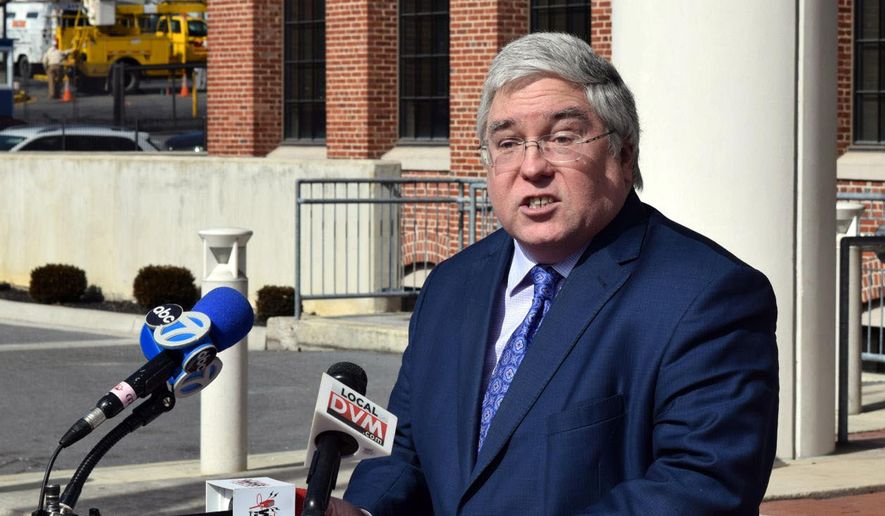President Biden has raced too far and too fast in reshaping the federal government on immigration, the environment and other policies, leaving himself open to serious legal challenges, said West Virginia Attorney General Patrick Morrisey.
Mr. Morrisey will be at the Supreme Court on Monday. His team will argue a case that could determine whether the Environmental Protection Agency, which is part of the executive branch of government, can claim the power to “decarbonize” the U.S. economy without an explicit grant of power from Congress.
“Our case is about a very simple proposition. We think when a federal agency wants to take action and regulate on a matter of major economic, political or social significance, it needs to obtain a clear statement from Congress about the nature of its authority,” Mr. Morrisey told Washington Times columnist Michael McKenna in an exclusive interview. “That most definitely did not happen with respect to EPA’s effort to unilaterally decarbonize.”
Mr. Morrisey is among a group of Republican attorneys general besieging the Biden administration with legal cases.
“This is a target-rich environment,” Mr. Morrisey said. “We are incredibly busy taking on President Biden’s overreach.”
The Republican attorneys general have had a successful run so far by blocking some of Mr. Biden’s attempts to roll back Trump-era immigration policies and helping derail some of his vaccine mandate policies.
They also have won a ruling against a provision that Mr. Biden signed into law in last year’s coronavirus relief package purporting to tell states that they can’t use federal pandemic money to give their residents tax breaks.
“It feels like the administration was trying to target red states because red states are, historically, looking to lower taxes,” Mr. Morrisey said. “If you insert a provision to prevent states from lowering taxes, that’s not right.”
He said it was “a classic case of how AGs can step up and block this sort of absurd federal overreach.”
Mr. Morrisey said the president’s handling of immigration and the southern border has been his “most miserable failure.”
Fentanyl is pouring over the border, with cartels feeding the supply deep into America’s heartland, and West Virginia is suffering, the attorney general said.
“People are dying because of his ineptitude,” he said.
West Virginia sued the Biden administration last summer over fentanyl, demanding more action to shut down a porous border.
Yet it’s the case involving the EPA that could define Mr. Morrisey’s battles with the Biden administration.
It is one of several challenges the Supreme Court is hearing this term over the broad powers of the executive branch and what sort of deference courts should give agencies in carrying out laws that Congress enacts.
Mr. Morrisey contends that Congress should speak on big questions. If the legislative branch hasn’t issued explicit goals and instructions, then the EPA and other federal agencies shouldn’t be allowed to piece together authorities to tackle significant issues such as climate change.
“There are some narrow areas where the EPA does have the ability to regulate, but what we saw out of the Obama administration and what we are seeing out of the Biden administration is that they want to take that more narrow authority and go very far with it, even though the statute does not justify it,” the attorney general said.
Now in his 10th year as West Virginia’s legal defender, Mr. Morrisey appears to have a good shot at either the state’s governorship or a U.S. Senate seat.
He has served in Washington before, handling health care matters as an attorney for the House Energy and Commerce Committee.
While studying at Rutgers University, he worked as a tennis umpire on the men’s professional circuit. He even worked the finals of the U.S. Open.
• Stephen Dinan can be reached at sdinan@washingtontimes.com.




Please read our comment policy before commenting.